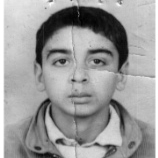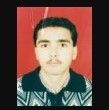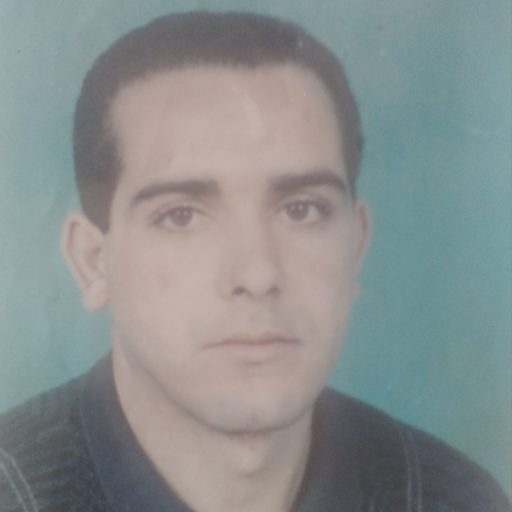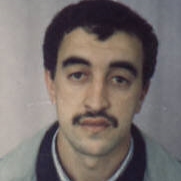
Adel, Tarek and Mohamed Kerouane
Date of arrest: 1994-04-12
Forces responsible: Security officials
Summary
On April 12, 1994 Adel Kerouane and two accomplices attempted a burglary. Surprised by security officials, they fled the scene. The security officials then opened fire, killing the two accomplices. Adel Kerouane was taken to hospital with a bullet wound to the leg and remained there for around two weeks. His father came to visit him three times. When he came the fourth time, however, he found that Adel was no longer in the hospital. A member of the hospital staff told him that he had been taken away by the security services but was unable to say what had become of him.
Tarek Kerouane, aged 16 at the time, was stopped by law enforcement officials on May 20, 1994 on his way home from school. The next day, he was taken home by some 20 uniformed and masked police officers and two plain clothes police officers. His uncle, who lives in the same house, tried to approach the car where his nephew was being held, but the officials stopped him. Their home was searched but nothing incriminating was found. The next day, Tarek’s grandmother tried to find out what had happened to him, without success. She then went to the military security services at the Belle-Vue barracks, where an official told her that she would have to wait two weeks to find out where Tarek was. Two weeks later she went back. The official made a phone call and she heard part of the conversation and realised that he was speaking to an official at Coudiat prison, who confirmed that Tarek was being held there. After the call the official merely told her that Tarek was not being held at the barracks, but did not say where he actually was.
At the family’s request, a visiting permit was issued on July 3, 1994, by the investigating judge of the Special Court of Constantine, stating that Adel and Tarek Kerouane were “under arrest at Constantine 25 prison”. However, the day of the visit, the prison guards at Constantine told the mother and grandmother of the missing persons that they were not being held there. Another visiting permit was issued for the same prison on July 28, 1994. The prison staff again turned Adel and Tarek Kerouane’s mother and grandmother away, and behaved in a threatening manner towards them. The prison guards told them that it would be in their interests not to come back because they “would not want to behave unpleasantly to women”.
Mohamed Kerouane, aged 15 at the time, was arrested on February 22, 1996, together with a friend. The friend, who was released a month later, told the Kerouane family that he and Mohamed had been arrested in the street without warning, and detained by officials of the Hamma gendarmerie. A gendarmerie officer told the family that “some people came for him” while he was detained, but did not say who these people were. Three months after the arrest, the family received information, corroborated by several people, that Mohamed’s body had been recognised as one of a number piled at the side of a road. Shortly afterwards, a friend of the family said they had seen the body at the mortuary. It was lying on the ground alongside several other bodies. All of them were wearing shoes without laces and trousers without belts indicating that they had been in prison. According to the friend, Mohamed’s head and body bore the marks of torture and ill-treatment. The family have never been able to see the body, however, or confirm Mohamed’s death, and do not know where he is buried.
On June 6, 1995, the Indictment Division of the Constantine Court charged Adel and Tarek Kerouane with “premeditated murder” and “membership to a terrorist group”, among other offences. The decision stated that “the suspects are still at large despite the call for their arrest”. Following this decision, the Kerouane family were notified that Tarek Kerouane had been summoned to a hearing on June 20, 1995, at the Indictment Division of the Constantine Court to hear the charges against him. Despite the fact that Tarek was not present at the June 20, 1995 hearing, having disappeared the year before, the Constantine Court decided at that hearing to refer the case for trial in the criminal court. Another summons was sent to the family for Adel Kerouane to attend a hearing on June 4, 1996, at the Indictment Division of the Constantine Court. In the absence of the person concerned, who had disappeared in 1994, the Indictment Division decided on June 18, 1996 to open a further investigation on charges of endangering State security and taking up arms against the state institutions.
Steps taken
June 6, 1995: The grandmother of Adel and Tarek Kerouane sends a written request to the State Prosecutor at the Constantine Court for information on the fate of her grandson, whereupon she is summoned to the security headquarters of the wilaya of Constantine by a police officer from the Directorate-General of National Security.
July 23, 1995: She is informed by the Directorate-General that “the inquiries had yielded no results”.
September 9, 1998: The victims’ mother goes to the wilaya offices in Constantine to find out what has happened to her missing children.
April 6, 1999: She is summoned to the investigation section at the gendarmerie brigade of the wilaya of Constantine and questioned about the circumstances of the three disappearances.
April 12, 1999: She receives a second summons from the investigating judge at the Constantine Court.
November 17, 1999: She receives a letter from the Director-General of Collective Freedoms and Legal Affairs of the Ministry of the Interior, stating that Adel is “wanted by the security services for obstructing the law”.
July 2, 2000: The Kerouane family writes to the Ministry of the Interior, the President, the National Observatory for Human Rights and the State Prosecutor at the Constantine Court to report the disappearance of the three brothers.
March 2, 2001: The National Observatory for Human Rights informs the family that “according to information provided by the security services, [Mohamed Kerouane] is not wanted and has never been arrested by the security services”.
December 5, 2001: The National Advisory Commission for the Promotion and Protection of Human Rights informs the family that “according to information provided by the security services, [Adel and Tarek Kerouane] are wanted by the security services”.
September 25, 2004: The Kerouane family is heard by the Ad Hoc Commission on Enforced Disappearances. During the hearing, the Commission tries to persuade them to accept the principle of reconciliation and thereby renounce their right to truth and the justice.
November 25, 2005: The cases of several hundred individuals are referred to the United Nations Working Group on Enforced or Involuntary Disappearances, including Adel, Tarek and Mohamed Kerouane.
2006: The family receives three certificates, one each for Adel and Mohamed Kerouane, attesting to their “death as members of terrorist groups”, and one for Tarek Kerouane, attesting to “disappearance under the special circumstances of the national tragedy”. The family also receives a death certificate for Adel Kerouane dated November 7, 2006.
February 16, 2012: Having exhausted all domestic remedies, the Kerouane family seizes the UN Human Rights Committee.
Decision of the Human Rights Committee
Right to an effective remedy (including in relation to the author), right to life, prohibition of torture and cruel or inhuman treatment (including in relation to the author), right to liberty and security of the person, respect for the inherent dignity of the human person, recognition as a person before the law, right to family life and right to protection for minors.
The State party must provide the family of Adel, Tarek and Mohamed Kerouane with an effective remedy, including by: (a) conducting a thorough and effective investigation into the disappearance of Adel, Tarek and Mohamed Kerouane and providing their family with detailed information about the results of its investigation; (b) releasing Adel, Tarek and Mohamed Kerouane immediately if they are still being held incommunicado; (c) if they are dead, handing over their remains to their family; (d) prosecuting, trying and punishing those responsible for the violations committed; and (e) providing adequate compensation to the authors, and to Adel, Tarek and Mohamed Kerouane if they are alive, for the violations suffered. Notwithstanding the terms of Ordinance No. 06-01, the State party should also ensure that it does not impede enjoyment of the right to an effective remedy for the victims of crimes such as torture, extrajudicial killings and enforced disappearances. The State party is also under an obligation to prevent similar violations in the future.




